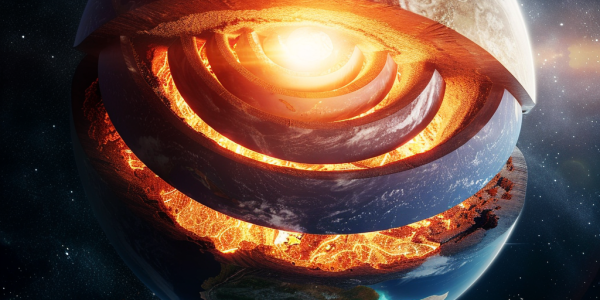New Study Reveals Earth’s Day Length Changes Linked to Core Movements
A groundbreaking study reveals how Earth’s spin speed influences day length, utilizing ancient eclipse data and machine learning. Researchers found minor fluctuations in day duration over 3,000 years, highlighting the impact of core movements, climatic changes, and the Moon’s gravitational pull. This innovative approach enhances our understanding of Earth’s rotational dynamics and the intricate balance of forces shaping our planet.
Study Reveals Groundwater Pumping Shifts Earth’s Tilt, Contributing to Sea-Level Rise
A groundbreaking study reveals that extensive groundwater pumping has shifted the Earth’s tilt by 31.5 inches, contributing to sea-level rise. Led by Ki-Weon Seo from Seoul National University, the research emphasizes the urgent need for sustainable water management practices to mitigate climate change impacts. This study highlights the intricate relationship between groundwater extraction and the Earth’s rotational dynamics, urging policymakers and communities to prioritize environmental conservation.
Experts Predict Significant Increase in Earth’s Day Length Over Time
Experts predict that Earth’s days will significantly increase in length due to the planet’s rotation slowing down. Factors such as the Moon’s gravitational influence and climate change play a role in this phenomenon. While the process is gradual and spans millions of years, it could lead to significant shifts in Earth’s daily rhythms in the next 250 million years.
Earth’s Inner Core Slowing Down Rotation, Impacting Day Length
Recent study shows Earth’s inner core is slowing down its rotation, potentially affecting the length of days. The solid mass of iron and nickel over 3,000 miles below the surface is rotating at a reduced speed, with implications for the planet’s overall rotation. Despite projected minuscule changes in day length, ongoing research sheds light on Earth’s intricate geophysical processes.
Climate Change Impacting Earth’s Rotation, Study Finds
A recent study by geophysicist Duncan Agnew reveals how climate change is affecting Earth’s rotation, potentially eliminating the need for leap seconds in the future. Earth’s spin is accelerating due to factors like currents in the core and melting ice sheets, offering a new perspective on the impact of environmental changes.
Global Warming Impacting Earth’s Rotation and Timekeeping
Global warming is causing polar ice melt, impacting the Earth’s rotation and timekeeping. A recent study reveals that the need for a ‘leap second’ is being delayed by three years due to the effects of melting polar ice, pushing it from 2026 to 2029. This unprecedented shift in the Earth’s rotation underscores the influence of global warming on time standards and the importance of understanding climate change on a global scale.






